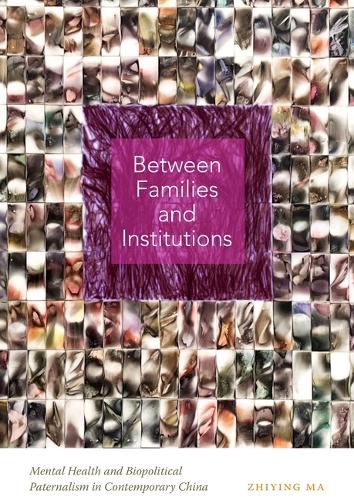Readings Newsletter
Become a Readings Member to make your shopping experience even easier.
Sign in or sign up for free!
You’re not far away from qualifying for FREE standard shipping within Australia
You’ve qualified for FREE standard shipping within Australia
The cart is loading…






In contemporary China, people diagnosed with serious mental illnesses have long been placed under the guardianship of their close relatives who decide on their hospitalization and treatment. Despite attempts at reforms to ensure patient rights, the 2013 Mental Health Law reinforced the family's rights and responsibilities. In Between Families and Institutions, Zhiying Ma examines how ideological, institutional, and technological processes shape families' complicated involvement in psychiatric care. Drawing on extensive ethnographic fieldwork in psychiatric hospitals, community mental health teams, social work centers, and family support groups as well as interviews with policymakers and activists, Ma maps the workings of what she calls "biopolitical paternalism"-a mode of governance that sees vulnerable individuals as sources of risk, frames risk management as the state's paternalistic intervention, and shifts responsibilities for care and management onto families. Ma outlines the ethical tensions, intimate vulnerabilities in households, and health disparities across the population that biopolitical paternalism produces. By exploring these implications, Ma demonstrates the myriad ways biopower enables, inhibits, and transforms medical care in China.
$9.00 standard shipping within Australia
FREE standard shipping within Australia for orders over $100.00
Express & International shipping calculated at checkout
In contemporary China, people diagnosed with serious mental illnesses have long been placed under the guardianship of their close relatives who decide on their hospitalization and treatment. Despite attempts at reforms to ensure patient rights, the 2013 Mental Health Law reinforced the family's rights and responsibilities. In Between Families and Institutions, Zhiying Ma examines how ideological, institutional, and technological processes shape families' complicated involvement in psychiatric care. Drawing on extensive ethnographic fieldwork in psychiatric hospitals, community mental health teams, social work centers, and family support groups as well as interviews with policymakers and activists, Ma maps the workings of what she calls "biopolitical paternalism"-a mode of governance that sees vulnerable individuals as sources of risk, frames risk management as the state's paternalistic intervention, and shifts responsibilities for care and management onto families. Ma outlines the ethical tensions, intimate vulnerabilities in households, and health disparities across the population that biopolitical paternalism produces. By exploring these implications, Ma demonstrates the myriad ways biopower enables, inhibits, and transforms medical care in China.